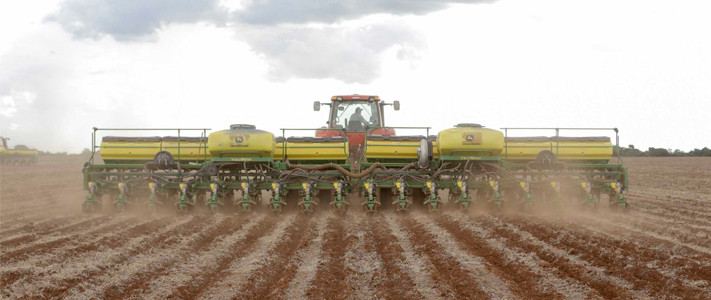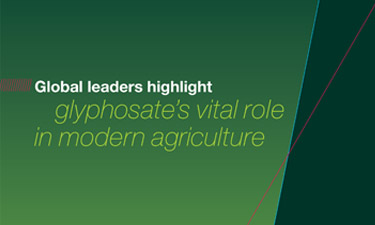Statement from Bayer on Four Corners program from 8 October 2018
About
-
Date
09 October, 2018
-
Location
Melbourne, VIC
About
Date
09 October, 2018
Location
Melbourne, VIC
Glyphosate is one of the vital tools that Australian farmers need to help feed Australian families. It helps control weeds and it is a key tool in farming practices which conserve soil moisture and organic matter, prevent soil runoff into nearby waterways and reduce greenhouse gas emissions.

Glyphosate has been used safely for more than 40 years, and it works.
We would like to set the record straight after the mischaracterisation of glyphosate in the ABC Four Corners report, which aired on Monday 8 October 2018. This program did not accurately or fairly reflect the safety of glyphosate.
The International Agency for Research on Cancer (IARC)’s 2015 classification of glyphosate is an outlier even within the World Health Organisation (WHO) system. The classification of glyphosate as a probable carcinogen places it in the same category as red meat and very hot beverages. IARC is just one of four WHO agencies to have assessed glyphosate – the other three agencies found that glyphosate does not present a cancer or human health risk. Since IARC made this assessment, regulatory authorities in the European Union, Germany, New Zealand, South Korea, Japan, Canada and the United States have reaffirmed that glyphosate does not cause cancer.
The extensive body of research on glyphosate and glyphosate-based herbicides includes more than 800 rigorous registration studies required by regulators, which show these products are safe when used as directed. In its 2017 post-IARC cancer risk assessment, the U.S. Environmental Protection Agency examined more than 100 studies conducted by different parties and concluded that glyphosate is ‘not likely to be carcinogenic to humans’ - its most favourable rating.
Further to this, the Joint World Health Organisation/Food and Agricultural Organisation Joint Meeting on Pesticide Residues also found glyphosate does not cause cancer.
Additionally, the largest and most recent study by the US National Cancer Institute which followed over 50,000 pesticide applicators in the U.S. found no association between glyphosate-based herbicides and cancer.
We also strongly reject the claims made about the company’s actions related to glyphosate. We are committed to the highest principles of scientific integrity and excellence, and we will continue to use our expertise to develop safe and effective tools that help farmers produce crops more sustainably.
ENDS
The International Agency for Research on Cancer (IARC)’s 2015 classification of glyphosate is an outlier even within the World Health Organisation (WHO) system. The classification of glyphosate as a probable carcinogen places it in the same category as red meat and very hot beverages. IARC is just one of four WHO agencies to have assessed glyphosate – the other three agencies found that glyphosate does not present a cancer or human health risk. Since IARC made this assessment, regulatory authorities in the European Union, Germany, New Zealand, South Korea, Japan, Canada and the United States have reaffirmed that glyphosate does not cause cancer.
The extensive body of research on glyphosate and glyphosate-based herbicides includes more than 800 rigorous registration studies required by regulators, which show these products are safe when used as directed. In its 2017 post-IARC cancer risk assessment, the U.S. Environmental Protection Agency examined more than 100 studies conducted by different parties and concluded that glyphosate is ‘not likely to be carcinogenic to humans’ - its most favourable rating.
Further to this, the Joint World Health Organisation/Food and Agricultural Organisation Joint Meeting on Pesticide Residues also found glyphosate does not cause cancer.
Additionally, the largest and most recent study by the US National Cancer Institute which followed over 50,000 pesticide applicators in the U.S. found no association between glyphosate-based herbicides and cancer.
We also strongly reject the claims made about the company’s actions related to glyphosate. We are committed to the highest principles of scientific integrity and excellence, and we will continue to use our expertise to develop safe and effective tools that help farmers produce crops more sustainably.
ENDS



